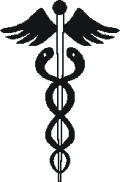2. A robot must obey the orders given it by human beings except where such orders would conflict with the First Law.
3. A robot must protect its own existence, as long as such protection does not conflict with the First or Second Laws.
MORALS & ETHICS
Everyone has the responsibility to be moral and ethical. An authority figure must have higher standards. If I am telling you how to live your life, then I must be an example of my own preaching. If I don’t, then you have the right and perhaps the obligation to ignore me.
Jesus, the leader of twelve disciples washed their feet. True leaders are servants to their followers. True leaders do what is required to serve and protect their followers. A true leader must earn and retain trust. A true leader does whatever is required to help his people do their jobs.
I had a boss who came to the work site during an attempt to recover from a disaster. He bought me a soft drink, handed me tools, found books or documentation that was needed, and ended up taking me out to dinner when it was over. I do not remember what the problem was, or even where it was, but I do remember his service to me and the respect he showed me. He definitely earned my respect and I would go out of my way when he asked for extra effort any time after that.
A true leader, especially in the case of Jesus, does even more. Jesus washed the feet of His followers. This was more than asked for. More than imagined. More than the disciples found acceptable. I would never have asked my boss to stay and play ‘fetch’ for me. These are things that set a true leader apart. This type of leadership causes the followers to be even more dedicated to the cause. Jesus’ disciples followed His teachings even to death.
There are many examples of poor leaders. They are the ones that tend to be judged harshly by history. Good leaders are much harder to find. Good leaders are not always the best known. They are rarely the most famous people of their times. There is one thing that separates a good leader from a bad leader. The good leader has the welfare of his followers uppermost in mind. If you want to be a good leader, you must do this first - - even before becoming a leader. Your soul must lead you.
1.
A robot may not injure a human being, or, through inaction allow a human being to come to harm.
2.
A robot must obey the orders given it by human beings except where such orders would conflict with the First Law.
3.
A robot must protect its own existence, as long as such protection does not conflict with the First or Second Laws.
![]()
OK, what do laws for robots have to do with morals or ethics? But then, what are the characteristics of a moral and ethical person? If you wish to be a leader, you must serve even better than a robot. You have to dedicate yourself to your people. The three laws do not apply just to robots, but to all leaders and advisors. A true leader honors the trust placed in him by his followers. A true leader does more than honor the trust placed in him by his followers.
In one of Isaac Asimov’s stories, the robot was able to detect harm to humans in other than physical ways. To not harm the human’s feelings the robot had to lie. But the lie also harmed the human.
All lies harm. All lies cause damage. Maybe not today, but eventually. This ended up driving the robot mad. It should also drive you mad to be faced by this dilemma. This care, love, and concern for the welfare of others must permeate our souls.

One of the most noble mottos that may be found in our world is one of the first taught to medical doctors. “First, do no harm.” This is the first law of robots. The things we desire of our servants are also the first things we desire of our masters. Do no harm. Do what is asked. Then, and only then, protect yourself. This is what Jesus did. This is done by many of those who serve as God desires. Should we relegate these laws to machines and not require humans to follow them?
Did I say these laws apply to leaders and advisors? What about the rest of us? Do the rest of us get to skip this? Remember, there is probably someone who looks to you for your values. To that person, even if you have no concept of whom that person may be, you must follow the morals and ethics that show what is proper. Are we not all called to lead in whatever way we can?
He who does wrong does wrong against himself. He who acts unjustly acts unjustly to himself, because he makes himself bad.
Not only he who does but he who fails to do a certain thing acts wrongly.
![]()
When someone says: “Everybody does it.” I hope I am not part of that everybody. I do not want to be the example of evil. I want to be the example of good. Sometimes I will fail. To fail is human. I refuse to accept this kind of failure. But, it will happen. I will fail, but I must fight my weaknesses. I hope the elephant stands in my way when I am tempted. The elephant is much larger than I.
If you become part of ‘everybody’ through your weakness then you must take responsibility for the sins committed in your name.
I for my part have never yet seen one who really cared for Goodness, nor one who
really abhorred wickedness. One who really cared for Goodness would never let any
other consideration come first. One who abhorred wickedness would be so constantly
doing Good that wickedness would never have a chance to get at him. Has anyone ever
managed to do Good with his whole might even as long as the space of a single day? I
think not. Yet I for my part have never seen anyone give up such an attempt because
he had not the strength to go on. It may well have happened, but I for my part have
never seen it.
![]()

Footnotes:
1. The three laws of robots by Isaac Asimov from “The Robot Novels.”
2. Marcus Aurelius - Meditations - 9:4-5
3. Confucius - Analects 4:6
copyright© 2007 George L Snyder